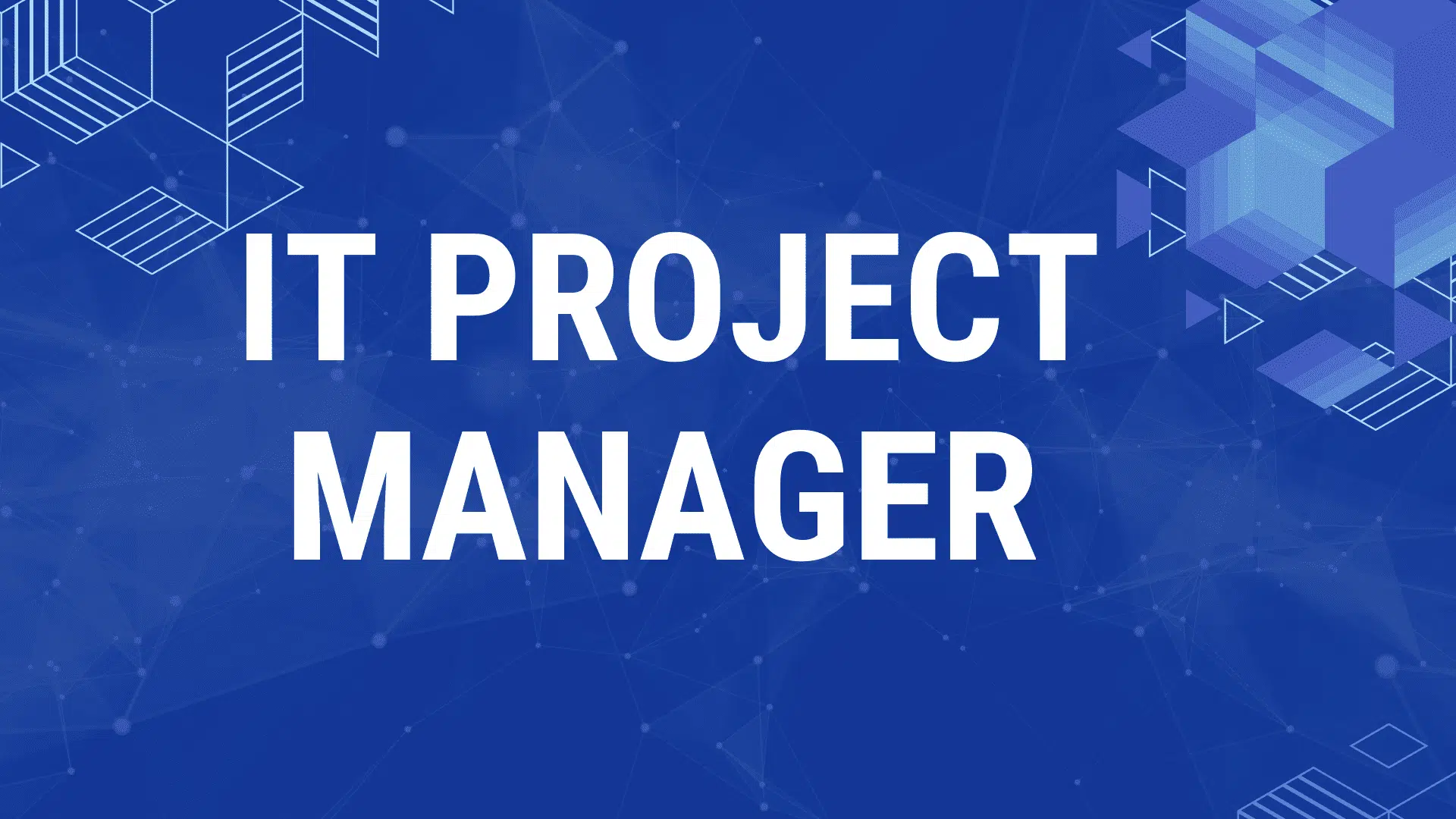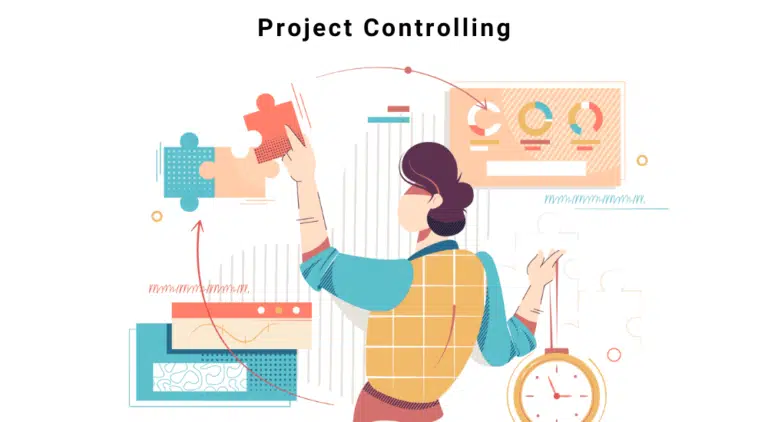The growth of Information Technology and software fields has opened prospects for many professionals, and IT project manager is one such position that has immensely benefited from this growth. IT project managers have helped grow organizations and achieve their objectives.
In today’s blog post, we will discuss IT project managers, their roles, salaries, how to become an IT project manager, and finally, review a sample resume for an IT project manager.
What is an IT Project Manager
An “IT project manager” or “Information Technology project manager” oversees an organization’s software or IT project. They help organizations improve their IT infrastructure, launch new products, and improve their products and services. They also allow quoting for IT or software contracts for the organization.
The primary role of IT project managers is to ensure that all IT projects are completed within the approved budget and duration and that stakeholders are satisfied.
In a projectized organization, they will have full-time roles and a dedicated team. A matrix, or functional organization, will have the IT project managers according to the roles and responsibilities, the type of organization, and the situation.
What Are the Roles and Responsibilities of an IT Project Manager
IT project managers have many responsibilities. They are responsible for managing IT projects and delivering the project deliverables to the project sponsor or client.
The roles and responsibilities of an IT project manager include:
- Collecting the product/project requirements
- Developing a project-management plan
- Building the project team
- Executing the project plans
- Monitoring and controlling the project’s progress
- Managing changes
- Providing status, progress, and performance reports to stakeholders
- Ensuring the quality of deliverables
- Delivering the project deliverables to the client
- Updating the lessons learned and organizational process assets
Salary and Job Prospects of an IT Project Manager
According to Glassdoor, the median salary for an IT project manager in the United States is 105,352 USD per year as of October 6, 2023. The total pay range (e.g., base salary, bonus, and other compensation) is 99,059—153,030 USD annually.
Other sources, such as Salary.com and PayScale, report similar salary ranges for IT project managers in the US. For example, Salary.com reports an average salary of 80,191 USD for an IT project manager, and PayScale reports an average salary of 105,000 USD.
An IT project manager’s salary can vary significantly depending on several factors (e.g., experience, education, certifications, location, and industry). IT project managers with more experience and specialized project-management skills can earn higher salaries.
The salary for an IT project manager in the US is relatively high, and the job outlook for this profession is expected to grow much faster than average over the next decade. According to the Bureau of Labor Statistics, employment for computer and information systems managers will increase by 16% from 2021 to 2031.
How to Become an IT Project Manager
If you want to grow your career as an IT project manager, you can follow the following guidelines:
#1. Earn an Undergraduate Degree
Though this is not a requirement, an undergraduate degree will help you become an IT project manager. With an undergraduate degree, you can quickly be promoted to a project manager position even if you have less experience than peers who do not possess an undergraduate degree.
To become an IT project manager, it would be best to get your undergraduate degree in computers or IT. For example, a Bachelor of Computer Application, a Bachelor of Engineering in Computer Science, etc. Completing a bachelor’s degree in a similar field will provide technical project-management skills.
#2. Earn Credentials
These days, global project management credentials are vital. These credentials validate your education, knowledge, and experience. Moreover, these credentials show employers that you are technically and professionally sound and that you are serious about growing your career.
Some popular project management certifications in the IT profession are PMP (Project Management Professional), PMI-ACP, CAPM, PRINCE2, etc. You can consider getting these certifications to grow as an IT project manager.
You can also get some Agile certifications to demonstrate your skills in Agile frameworks (e.g., SAFe, Certified Scrum Master (CWS), Professional Scrum Master (PSM), Kanban Management Professional (KMP), etc.).
#3. Gain Work Experience
As an IT project manager, you will lead a team of professionals. You cannot get this position without sound experience in the same or similar field. Therefore, apply for entry-level jobs and get some relevant experience. It will help you build your skills and provide practical knowledge. You may get promoted as the IT manager in the same firm after some time, and if not, you can look out for a position in other firms.
I recommend getting entry-level certifications for your first job, such as CAPM or PRINCE2. These certifications will help you get a job easily, and once you get some experience, you can apply for higher-level certifications such as PMP or PMI-ACP.
#4. Apply for an IT Project Manager Job
You have education, experience, and credentials; it’s time to hunt for an IT project manager job. Create a resume highlighting your skills, experience, and credentials and apply on various job sites. You can also use your local network to learn about the job openings.
Create a customized cover letter and modify the resume per the job requirement to increase the chance of getting interview calls. Make sure you have references ready whenever the employers ask for them.
IT Project-Management Skills
To become a successful IT project manager, you will need soft and hard project management skills. Soft skills are people skills which help motivate employees and encourage them to work efficiently. These skills are strongly tied to human nature.
Hard skills are quantifiable, and you can earn them through training and education. These include technical skills (e.g., coding, knowledge of specialized equipment, etc.).
#1. Collaboration
You will collaborate with different stakeholders to complete the project. These stakeholders include team members, management, project sponsors, clients, etc.
With your collaborative skills, you can get stakeholder buy-in and complete the project with minimal hassle.
#2. Communication
According to this survey, 68% of respondents considered communication skills as the key skills in project management. You must be able to communicate with team members, sponsors, and management, submit status reports, and provide performance and progress reports to relevant stakeholders.
#3. Conflict Resolution
All projects have conflicts; you must solve them constructively before they create problems for your project. Every conflict is unique, and you must tackle each as the situation requires. Though no problem-solving technique is the best, PMI recommends using a collaborative conflict-resolution technique that incorporates all parties’ viewpoints.
#4. Decision-Making
As a project manager, you will make decisions daily that must positively affect the project outcome. Decision-making skills are critical, including making the right decisions from available options. A wrong decision can negatively affect the project objectives.
#5. Leadership
You are leading your team, and therefore, you must guide them and assist them with completing their tasks. They will approach you if they have any conflicts. Good leadership skills will help you motivate team members, encourage teamwork, and build a cohesive team. Leadership qualities are necessary for a good IT project manager.
#6. Patience
Patience is the key skill in project management. The project environment is tense sometimes; you may have to make quick decisions. Making decisions in haste can negatively impact the project. The project manager must think critically and evaluate all available options before concluding.
#7. Time Management
Project managers are always busy and must not miss tasks, appointments, meetings, etc. They must be punctual at all times. They must organize tasks and allot time; otherwise, the project will be messy.
#8. Change Management
Changes happen in projects. They can be due to the client’s request, poor planning, poor plan execution, etc. You must influence and try to minimize the factors that cause these changes. However, if changes are necessary, then you must review the change and its impact on the project objectives, as well as the route to gain approval for the change. Once the change is approved, then you can implement it and update the project plans.
#9. Conducting Meetings
You will have many meetings during the project’s lifecycle. A kickoff meeting is the first meeting among project stakeholders, and it is an opportunity to show off your project management skills. Here, you will explain the creative brief, project objective, key milestones, project timeline, etc. Conducting these meetings requires a combination of technical knowledge and project management skills.
#10. Planning and Forecasting
You must possess planning skills. Although you will not develop all plans alone, you should know the planning process and its technicalities. Project forecasting will help you find potential project outcomes. You can determine future cost performance, required project budget, etc.
#11. Project Management Frameworks
You can use many project management frameworks (e.g., traditional, Agile, or hybrid). As a project manager, you should know these frameworks and use them to support your team and guide them to project success.
#12. Project Management Tools
Organizations use project management tools. These cloud-based tools have many features to conduct project-management activities. By using these tools, you can create a plan, develop a schedule, assign resources to tasks, determine milestones, assign tasks to team members, etc. Therefore, you should know how to use project-management software.
Sample Resume for an IT Project Manager
The following is the sample resume for an IT project manager:
Tom Hank
123 Main Street, ABC Town, CA 12345
(123) 456-7890
Professional Summary
IT Project Manager with 5+ years of experience in the technology industry. Proven ability to successfully deliver complex projects on time, within budget, and according to scope. Expertise in project-management methodologies, risk management, and stakeholder engagement. Strong leadership and communication skills.
Professional Experience
IT Project Manager, Acme Corporation (Anytown, CA) 2019—Present
- Managing a team of 10 engineers to develop and implement a new customer-relationship management (CRM) system
- Successfully delivering the project on time and within budget, thereby exceeding all requirements
- Improving sales process efficiency, thereby increasing customer satisfaction by 15%
- Automating tasks and streamlining workflows, thereby reducing deal-closure duration by 20%
IT Project Manager, XYZ Company (Anytown, CA) 2017—2019
- Managed a team of five developers during the company on-premises IT infrastructure migration to the cloud
- Successfully completed migration without any downtime or disruption to business operations
- Optimized cloud resources, thereby reducing IT costs by 10%
- Improved company security by implementing new cloud security measures
Core Competencies
- Agile & Waterfall Project-Management Methodologies
- Risk Management
- Stakeholder Engagement
- Team Leadership
- Communication
Technical Proficiencies
- AWS
- Azure
- Google Cloud Platform
- Jira
- Confluence
Education
Master of Science in Project Management from Stanford University (Stanford, CA)
Bachelor of Science in Computer Science from the University of California, Berkeley (Berkeley, CA)
Certifications
- Project Management Professional (PMP)
- AWS Certified Solutions Architect—Associate
Awards
- Acme Corporation Employee of the Year (2022)
- XYZ Company Innovation Award (2018)
References
Available upon request.
Summary
An IT project manager is a demanding and constantly evolving position. To become an IT project manager, you must get an education, earn project-management skills, and apply for an IT project manager position in a firm.

I am Mohammad Fahad Usmani, B.E. PMP, PMI-RMP. I have been blogging on project management topics since 2011. To date, thousands of professionals have passed the PMP exam using my resources.







